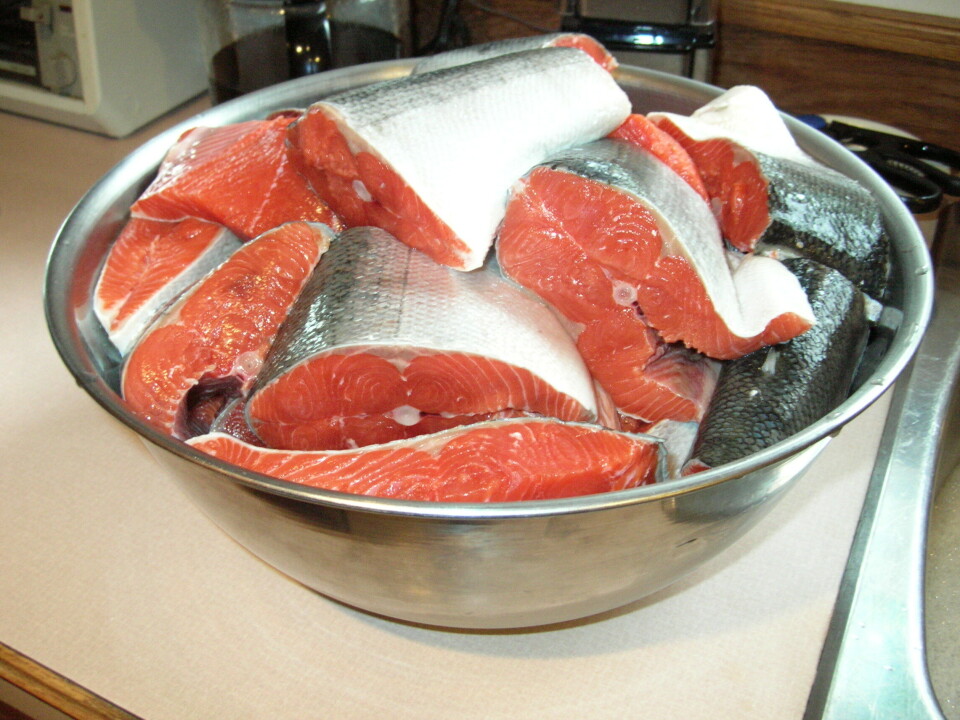
Eat salmon and trout- farmed or wild- it’s good for you
Opinion
As late as yesterday (June 25) a blogger who claims that: “She knows food & recipes” made a suggestion that people should avoid eating farmed salmon because it can “contain elevated levels of PCBs (polychlorinated biphenyls), a highly toxic industrial compound”. Karen Miner obviously missed the furor created by the January, 2004 study by Hites et al. , where suggestions that people- especially pregnant women and small children- should avoid eating farmed salmon. Government health authorities all around the world issued what could only be interpreted as condemnation of the inappropriate findings which created overnight headlines thanks to a well-oiled publication machine. And the “wild” salmon that Ms. Miner advocates for are consistently found to contain higher levels of mercury than farmed salmon, although like with the PCB levels, all salmon are safe to eat.
Ms Miner should rewrite her blog after reading the following;
One Fish, Two Fish, Good for You Fish
Should you eat fish during pregnancy? Of course! Fish can be a healthy addition to your pregnancy diet as long as you’re aware which fish are safe and which ones to avoid. Here’s the rundown on which fish you should and shouldn’t eat during pregnancy.
Which fish to eat Dr. Charles Santerre, associate professor in the Department of Foods and Nutrition at Purdue University, and Food Science Spokesperson for the Institute of Food Technologists, recommends that pregnant or nursing women eat at least 8 ounces of fish each week. While many types of fish are safe during pregnancy, the best choices are farmed salmon, wild salmon, or farmed rainbow trout. “These three fish are very good sources of long chain omega-3 fatty acids and are very low in contaminants,” explains Dr. Santerre. Long chain omega-3 fatty acids are important for the brain development of the fetus and nursing infant; and some studies have shown that women who eat fish have fewer preterm deliveries.
These particular fatty acids are also available in fish oil capsules, but Santerre recommends that women check with their care provider first and then take only one capsule every other day. There are also other types of fish that are safe during pregnancy, although they don’t provide omega-3 fatty acids. The FDA recommends that pregnant women eat shellfish, canned fish, smaller ocean fish or farm-raised fish in amounts up to 12 ounces per week.
Which fish to avoid Several types of fish are unsafe for pregnant or nursing women. The FDA recommends that pregnant and nursing women and small children not eat shark, swordfish, kind mackerel, and tilefish (sometimes called golden bass or golden snapper). These fish are all high in methyl mercury, which is dangerous to unborn and nursing babies. “Mercury passes quickly through the placenta and breast milk,” states Dr. Santerre, “and is a developmental toxin that can cause learning and growth delays.” You should also be aware that locally caught sport fish might not be safe for consumption during pregnancy. The FDA advises that women check their state or local government agencies for advisories concerning these fish. Whenever you eat fish, be sure it’s cooked thoroughly; sushi is a no-no during pregnancy.























































